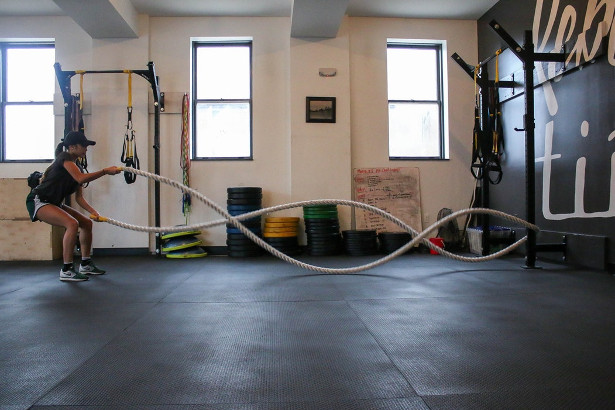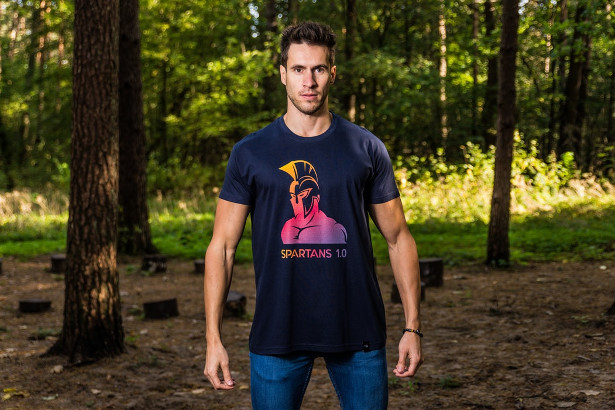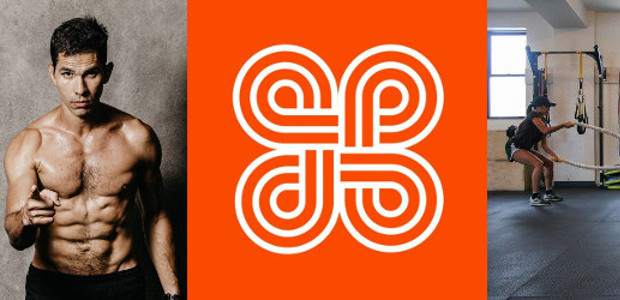Five supplements to fuel your workout and help with recovery
www.healthspan.co.uk

& www.healthspanelite.co.uk
TWITTER | FACEBOOK | YOUTUBE | PINTEREST
Healthspan Head of Nutrition and Registered nutritionist Rob Hobson explains the role of supplements and how they can help to support your workout regime and aid recovery.
Whether you’re a ‘three times a week’ kind of person or training competitively, nutrition plays a key role in helping you to achieve your fitness goals. The basics are the same whether you’re Joe Bloggs or Usain Bolt in that you need the fuel to get you through your workout and the nutrients to support your recovery. Needs differ depending on the intensity of your exercise regime and this can work both ways in that some people may need to focus on getting more into their diet to maintain weight, micronutrient (vitamins and minerals) intake and energy levels, whilst others may need to focus on eating less to support weight loss, whilst still maintaining energy levels and micronutrient intake.
Food always comes first and that’s a no-brainer but in some cases, supplements can offer a useful way to ‘top-up’ the diet with micronutrients or provide a quick-fix ‘meal’ to aid recovery or support weight maintenance. Supplements can also help with hydration during training sessions and competition, whilst also helping to support the immune system, which needs to be kept in tip-top condition to prevent illness that can hamper training efforts.
Top five supplements
Protein powders
Once seen as a specialist product reserved for hardcore gym bunnies, protein powders have now gone mainstream and are available in many varieties. Of course, you can make your own homemade protein shakes but powders offer a convenient way to get your protein fix post-training and especially if you need something ‘on-the-go’.

Protein powders of the past were almost all based on whey protein but new blends make use of other protein sources such as soy, pea, seeds, potato and rice. These blends offer options for vegans, lactose intolerant people and those that find whey varieties a little ‘windy’. Research has suggested that the leucine and other branched-chain amino acids have a particularly prominent role in stimulating muscle protein synthesis and these are now popular amongst many blends.
If you’re a casual trainer then the truth is that you probably don’t need a shake on top of your three meals per day as they just add unnecessary calories and you can glean enough protein through your diet. Saying that, protein shakes can be a useful meal replacement, especially for breakfast if your caught ‘on-the-hop’.
The choice of protein powder is personal and looking beyond the baffling science and marketing behind many of these products you just need to find one that works best for you and gets the job done. Your training and body weight goals will affect your choice as some are lower in calories than others. You may also want to look for one that contains no added sugar. Your diet preferences will dictate the type of protein you choose (vegan for example) and the ability to blend well is crucial in making them palatable. Flavours differ but the unflavoured varieties can provide a nice base to add other ingredients such as fruits, nut butters, and cocoa powder that can offer additional micronutrients to your shake (great for meal replacement shakes). Try Healthspan Elite Essential Whey Protein Concentrate (£24.99 for 1kg).
Multivitamin and minerals
Yes, we have all heard the mantra that you can get everything you need from diet alone and nothing could be truer if we ate a perfect diet all of the time but the reality is that most of us don’t. The National Diet and Nutrition Survey (2018) has shown inadequate intakes of minerals such as potassium, iodine, magnesium, calcium and iron amongst certain groups of the population.

Micronutrients are required by the body in small amounts to support every function it performs and that includes immunity, muscle function and energy metabolism (the conversion of food into energy). We do have dietary guidelines that include recommended daily micronutrient intakes intended to meet the needs of most of the population but intense training and restrictive weight loss diet regimes can leave some people lacking in some of these. Micronutrient deficiencies are not common and usually the result of restricted food intake but low levels can still impact on energy and put you at greater risk of deficiency.
Multivitamin and mineral supplements are a cheap way to top-up the diet and bridge any gaps that might exist as a result of training or weight loss diets. Look for a broad-spectrum supplement that has been designed for your particular sex such as Healthspan Multivitality Pro (£11.95 for 90 tablets).
Probiotics
These friendly bacteria are the darling of the health world and research appears to have only touched the surface on their potential role to health. Probiotics are beneficial bacteria whose health benefits are supported by adequate research. Probiotics foods include live yoghurt but these bacteria are also available in supplement form. Researched bacterial strains include Lactobacillus and Bifidobacterium that have been shown to support gut health.

Ongoing research is investigating the role of probiotics to support immunity and they are often recommended after gastrointestinal illnesses or a course of antibiotics that can wipe out good bacteria from the gut. Probiotics have also been seen to be useful in cases of IBS although it’s unclear exactly how. The future of probiotic research is pointing in the direction of mental health as researchers investigate the link between the gut microbiota (diversity of bacteria in the gut) and brain that could be associated with mood disorders or conditions such as obesity.
Probiotics are a good option for anyone looking to support their gut health. Supplements are the most effective way to add beneficial bacteria to the gut. Look for a supplement containing well researched strains including both Lactobacillus and Bifidobacterium in a concentration of at least 20 billion bacteria per serving. Taking probiotics in the morning with breakfast will dilute the effects of stomach acid and help to facilitate the transport of bacteria to the gut. Avoiding hot drinks with probiotics is advisable as they can destroy the bacteria before it reaches the gut.
Magnesium supplements
Magnesium is one of the most abundant minerals and is involved in many reactions that keep the body working well. This mineral is essential in the process of converting food into energy, oxygen uptake and the synthesis of proteins, which is vital for the growth of muscles. There is evidence that marginal magnesium deficiency impairs exercise performance and can amplify the negative consequences of strenuous exercise as well as contributing to tiredness and fatigue. Magnesium is also involved in muscle relaxation and whilst the science is lacking, anecdotal evidence suggests that supplements and bath salts may help with muscle cramping.

The National Diet and Nutrition Survey (2018) has shown that an inadequate intake of magnesium exists amongst 38% of teenagers and 13% of adults. Given the many roles of magnesium in the body, including those that impact on exercise performance, this supplement may be a useful ‘all-rounder’ for people with intense training regimes. If you’re taking magnesium on a regular basis then try choosing magnesium oxide to prevent any digestive complaints that can potentially hamper training. Try Healthspan Elite Magnesium Plus (£12.99 for 120 tablets).
Electrolyte sachets and effervescent tablets
Electrolytes are essential to human survival as they provide a small electrical current needed in order for many body processes to function such as nerve and muscle function, and blood pressure. As for hydration, electrolytes are responsible for directing water and nutrients to areas of the body that need it most and maintaining optimal balance of fluids within the cells.
Electrolytes include sodium, potassium, calcium and magnesium. These electrolytes are lost in sweat during exercise. The more you sweat, which is usually related to the intensity of exercise, the more important it is to replace electrolytes to assist with rehydration. Training or competing outside in the heat can cause greater electrolyte losses and may cause problems if not replaced sufficiently.
There are lots of products on the market and most contain calcium, magnesium, potassium and sodium. Try choosing one that’s low in sugar (unless it’s intended to be used during competition or heavy sessions as an energy source) and always test any supplements that you intend using during competition before the event in case they cause any gastrointestinal discomfort.
Diet and exercise contribute to the pillars of good health. When it comes to working out, competing, losing weight or building muscle mass, the two are perfect partners. Whilst food can provide everything your body needs to support your training regime and other fitness and body weight goals, sometimes we don’t eat a perfectly balanced diet all of the time. Supplements can offer an ‘insurance policy’ to fill any gaps in your diet, provide additional health benefits to support your health and offer a quick and convenient way to meet the additional requirements put upon the body from your training regime.


















